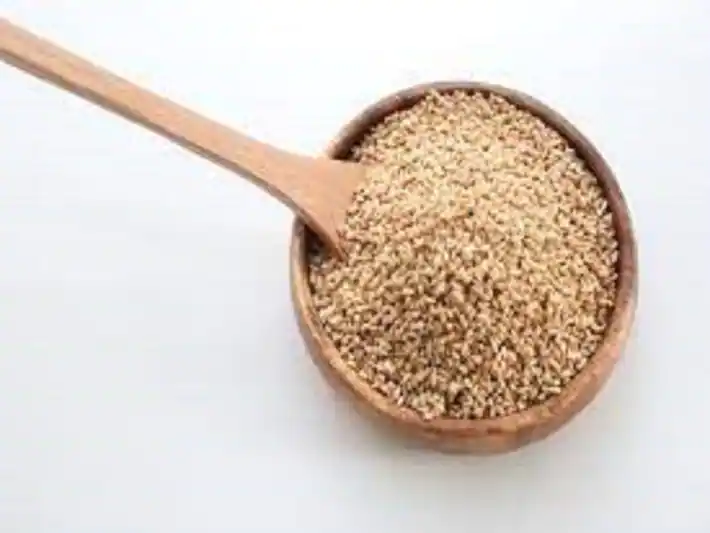Sesame seeds have recently gained popularity as Superfood, but it has been an essential part of Indian cuisine for as long as one can remember. It has been cultivated in India since the Harappa period and is commonly known as ‘Til’. Deputy Chief Medical Officer, Dr HP Bharathi, Jindal Naturecure Institute, shares the benefits and side effects of consuming sesame seeds.
HEALTH BENEFITS
- Treatment of anxiety: Sesame seeds contain magnesium, vitamin B1 and tryptophan, which have stress-relieving properties. Tryptophan is essential in producing serotonin, a neurotransmitter that reduces pain and regulates sleep patterns and moods.
- Inflammation: They are a good source of thiamine and vitamin B6, which are necessary for proper cellular function and metabolism. In addition, copper helps the users cope better with inflammation-caused conditions affecting the body joints.
- Blood Pressure: Sesame seeds help in lowering blood pressure. Also, other antioxidants with vitamin E in the seeds help maintain healthy blood pressure. It can also prevent hypertension, a significant risk factor for sudden strokes.
- Protection from UV rays: Due to the presence of natural antioxidants and natural SPF in sesame, it protects the body from harmful ultra-violet rays. It also prevents damage to the intestine.
- Rich source of fibre: Fibers are essential for health, preventing diseases and are well known for supporting digestive health. Rich fibre intake prevents certain types of cancers and provides heart health.
- Anti-Cancer: Sesame seeds contain magnesium and phytate, which has anti-cancer properties. They reduce the risk of breast, lungs, pancreas and prostate cancer.
- Dental Health: Sesame seeds contain oil components which are healthy to consume. They help in removing dental plaque and boosting our oral health.
- Respiratory Health: Magnesium in sesame seeds prevents airway spasms and reduces the risk of asthma and other respiratory disorders.
- Strong bones: It provides a good amount of calcium and helps absorb nutrients, leading to healthy bones, especially for women.
- Weight loss: It helps increase metabolic rate and prevents excessive calorie intake, resulting in weight loss.
- Increases Immunity: Sesame seeds are rich in various nutrients such as copper, zinc, iron etc.
SIDE EFFECTS
- Allergy: Anaphylaxis or Sesame allergy is also one of the most common side effects of the consumption of sesame seeds. Some common symptoms are nausea, breathing problem etc. In addition, people with gout and Wilson’s disease should avoid sesame seeds as it contains oxalates and copper.
- Appendicitis: Sesame seeds can cause an appendix if consumed in large amounts. The seeds contain indigestible fibres, and too much intake forms a layer over the appendix, which can cause pain.
- Constipation: Sesame seed side effects include bowel obstructions when consumed excessively. It can cause severe digestion issues.
